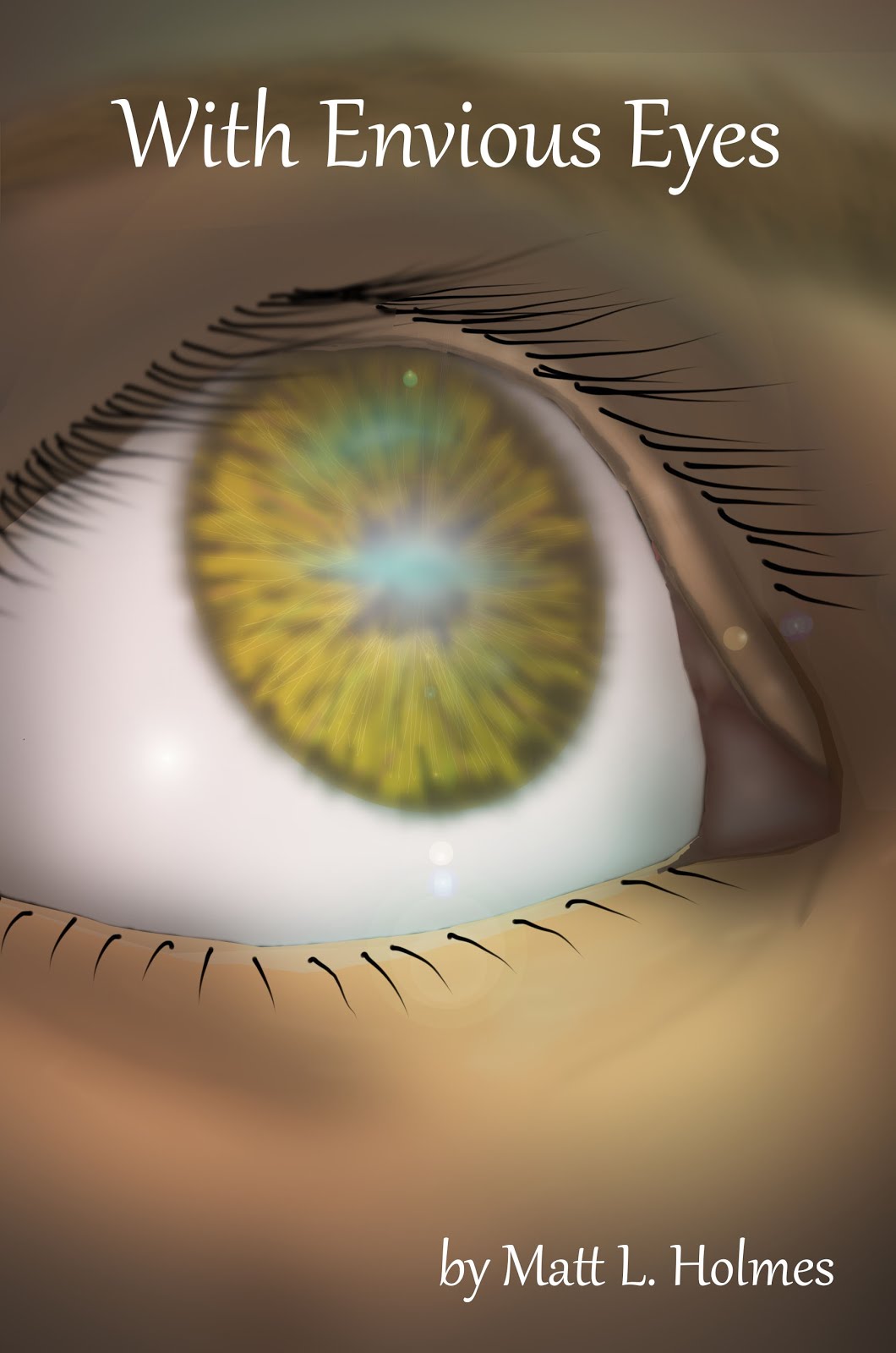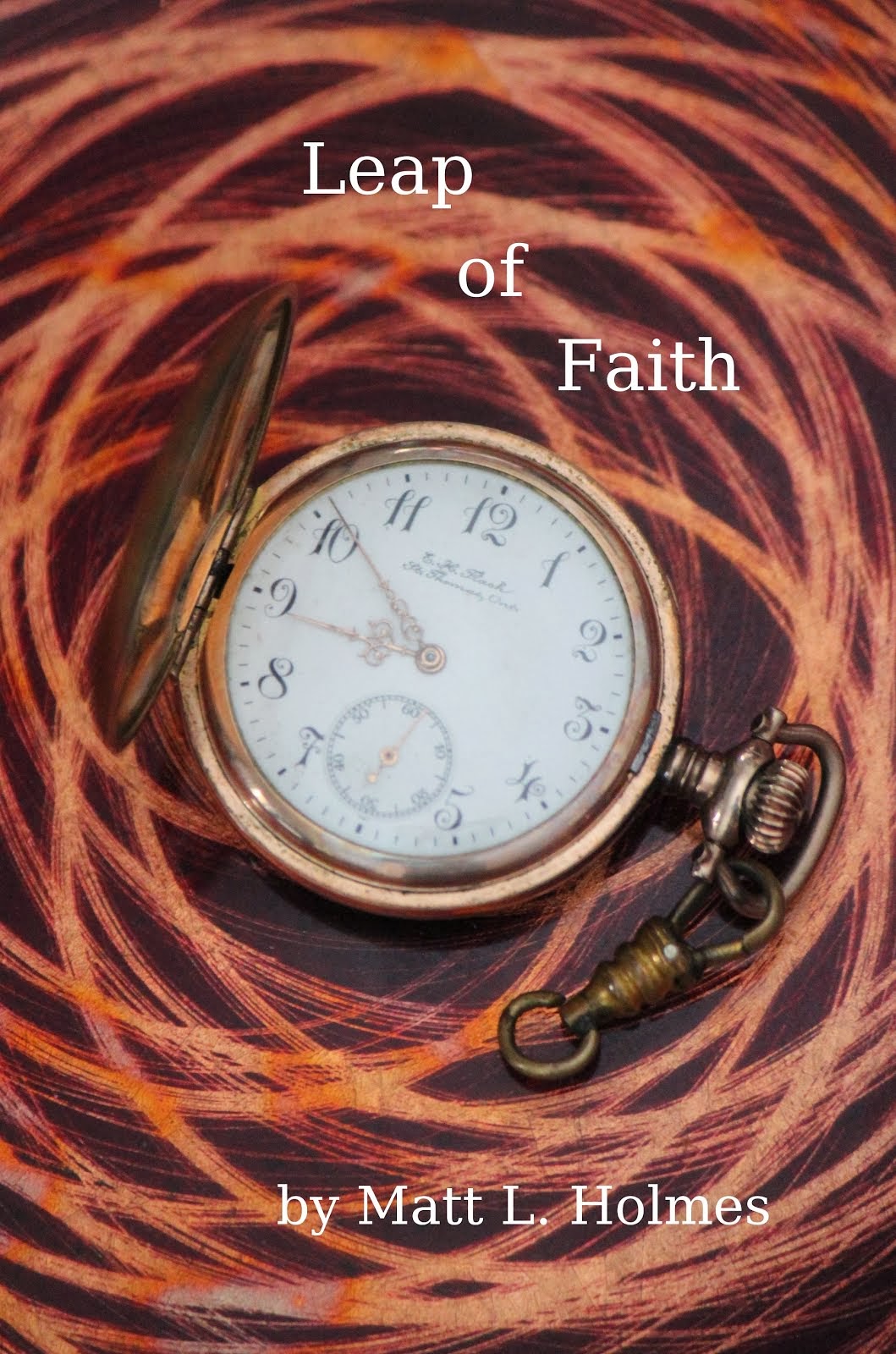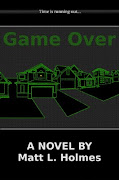Tuesday, June 25, 2013
For The Programmers Out There
A funny list of 30 examples of new programming jargon. # 10 naturally made me think of Jimmy Hinckley, who we all miss dearly.
Monday, June 24, 2013
Mark Waid Nails It
While I liked Man of Steel a bit more than Mark apparently did, his spoiler-laden review of the film touches on every one of the aspects that didn't work for me. Although I'll definitely watch it again (unlike Waid), I agree that the soul of the character that I've known and loved for nearly 45 years wasn't on display in Zack Snyder's movie. In the same way that Snyder came up short in turning Watchmen into a film when he failed to understand some of Alan Moore's more subtle nuances in the original material, he falters here in grasping what makes Superman so special: his own invulnerability is what makes him care so much about those who can't survive a building falling on them as he can. And Vicki will attest to the fact that, at least once during the final act of Man of Steel, I muttered under my breath, "Now go rescue some of the people in the rubble, dummy!" The fact that he didn't, more than anything else, reveals where Snyder and screenwriter Goyer lost their grip on the character.
Still, for all that, it's a Superman movie worth watching, much more so than its predecessor with Brandon Routh.
Still, for all that, it's a Superman movie worth watching, much more so than its predecessor with Brandon Routh.
Thursday, June 20, 2013
In Other Amazon News
Today seems to be Amazon Day here at Kimota94's Place!
As a followup to a post from last month about the introduction of fan fic site Kindle Worlds, there's this news today about Kindle Worlds expanding to include some comic book universes! Specifically, several titles from the Valiant comic line are now available to be 'fan fic'ked, so to speak.
I'm starting to believe this is actually going to become 'a thing' in publishing. I just can't tell if it's a good thing or a bad thing.
As a followup to a post from last month about the introduction of fan fic site Kindle Worlds, there's this news today about Kindle Worlds expanding to include some comic book universes! Specifically, several titles from the Valiant comic line are now available to be 'fan fic'ked, so to speak.
I'm starting to believe this is actually going to become 'a thing' in publishing. I just can't tell if it's a good thing or a bad thing.
Do A Brother A Favour?
I've laboured under a particular delusion for a while, and only today learned the error of my ways. I always believed that you could only do a review of something on Amazon if you purchased the item first. I think my mistake stemmed from the fact that I've been prompted many times to provide reviews of items I'd bought, and that formed the connection in my brain.
Anyway, now that I know the truth, I'd like to ask any readers out there who enjoyed No Brother of Mine to please take a few minutes and leave a review of it on Amazon. It looks like it requires a minimum of 20 words to constitute a review, but hopefully that won't pose too much of a challenge! (No Brother of Mine, after all, is around 90,000 words so it can't be that hard to come up with 20 words to describe your reaction to it, can it?) Probably the most important thing is just getting more reviews, period, out there, especially 4- or 5-star reviews (hint, hint). So please consider helping me out in this fashion if you can.
No Brother of Mine on Amazon can be found here, and then click on the (# customer reviews) link near the top of the page to start your review.
Thanks!
P.S. Obviously the same goes for any of my other books that you've read and liked. I'm just trying to push No Brother of Mine right now as it seems to be the most popular of the bunch.
Anyway, now that I know the truth, I'd like to ask any readers out there who enjoyed No Brother of Mine to please take a few minutes and leave a review of it on Amazon. It looks like it requires a minimum of 20 words to constitute a review, but hopefully that won't pose too much of a challenge! (No Brother of Mine, after all, is around 90,000 words so it can't be that hard to come up with 20 words to describe your reaction to it, can it?) Probably the most important thing is just getting more reviews, period, out there, especially 4- or 5-star reviews (hint, hint). So please consider helping me out in this fashion if you can.
No Brother of Mine on Amazon can be found here, and then click on the (# customer reviews) link near the top of the page to start your review.
Thanks!
P.S. Obviously the same goes for any of my other books that you've read and liked. I'm just trying to push No Brother of Mine right now as it seems to be the most popular of the bunch.
Monday, June 17, 2013
Off To Have Dinner With Another Author
Elaine Cougler, who was nice enough to do a 2-part author interview with me late last year, has just released her first novel, The Loyalist's Wife. Vicki and I have both been reading (and enjoying) it, and tonight we'll be lucky enough to have dinner with Elaine and her husband, Ron. There should be lots of author-talk, I hope!
Tuesday, June 11, 2013
Everything You Ever Wanted To Know About The PS4
Read all about it!
P.S. I've already pre-ordered mine! And it wasn't even half as exciting as when I pre-ordered my PS3 back in December of 2006.
P.S. I've already pre-ordered mine! And it wasn't even half as exciting as when I pre-ordered my PS3 back in December of 2006.
Quit Blaming Video Games For Violence In The Real World
Here's a good article that shows just how weak the argument that "video game playing leads to violence" really is.
Labels:
PS3,
Science,
Video Games,
XBox
Monday, June 10, 2013
A Few Minor Writing Points
(This sort of post is likely only relevant to me, as a form of journal entry that I can refer back to later. But anyone out there who still follows this blog is certainly welcome to find whatever entertainment value in it that they can!)
As I get ready to start the 2nd chapter of novel # 4 (once I've finished here), I've come to recognize certain patterns in the way I write. I may have mentioned some or all of these before, but at least now they'll be collected in one place.
For instance, I've learned how to tell a good story idea from a substandard one. When I'm trying to come up with the next plot point, the best ones always feel as if I'm remembering them, rather than making them up. It's like that feeling you get when you're struggling to recall the details of something - maybe a conversation you had, or a memory from many years ago - and suddenly it clicks into place and you know with certainty that you've recalled it correctly. That's what I've found to happen with the best parts of my novels so far. And it's a great barometer for me to use in evaluating each new idea that comes along.
Also, I think I now understand why the writing always goes so much faster toward the end of the book. I'd always assumed it was because each of the various subplots had been set in motion by then and all that remained was to resolve them. I imagine that's part of it, but there's also an element of knowing the characters so well by that point that they practically write themselves. As a corollary of that, things tend to go slowly in the early stages because I'm not entirely sure which direction some of the characters are going to advance in just yet, and that makes the process harder.
And finally, I've had a revelation about my work ethic when it comes to writing. I've suffered from a lot of frustration over the past several years because I haven't been as disciplined as I'd like about actually sitting down and writing. I've gotten very down on myself about this, at times. However, I think I may have been selling myself short in that regard. A lot of the time I spend not-writing, especially when I'm not engaged in some other activity, is actually devoted to figuring out what happens next, or what motivates this character or that one, or what the best structure is to use for that next revelation. In other words, I'm writing a hell of a lot more often than I'd ever given myself credit for. It's simply happening in my head, rather than on the keyboard. Vicki and I have started referring to that as "percolation time" while working on this current book, meaning the periods during which all of the various ideas are percolating around in my brain before they're fully formed enough to be written down. Julie had pointed out something similar on an earlier book project, but I hadn't appreciated just how significant that part of the process was at the time. Now that I do, it feels like a large, guilty weight has been lifted from me.
Anyway, now it's time to go do some of the type-type-type writing, as Chapter 2 feels ready to go!
As I get ready to start the 2nd chapter of novel # 4 (once I've finished here), I've come to recognize certain patterns in the way I write. I may have mentioned some or all of these before, but at least now they'll be collected in one place.
For instance, I've learned how to tell a good story idea from a substandard one. When I'm trying to come up with the next plot point, the best ones always feel as if I'm remembering them, rather than making them up. It's like that feeling you get when you're struggling to recall the details of something - maybe a conversation you had, or a memory from many years ago - and suddenly it clicks into place and you know with certainty that you've recalled it correctly. That's what I've found to happen with the best parts of my novels so far. And it's a great barometer for me to use in evaluating each new idea that comes along.
Also, I think I now understand why the writing always goes so much faster toward the end of the book. I'd always assumed it was because each of the various subplots had been set in motion by then and all that remained was to resolve them. I imagine that's part of it, but there's also an element of knowing the characters so well by that point that they practically write themselves. As a corollary of that, things tend to go slowly in the early stages because I'm not entirely sure which direction some of the characters are going to advance in just yet, and that makes the process harder.
And finally, I've had a revelation about my work ethic when it comes to writing. I've suffered from a lot of frustration over the past several years because I haven't been as disciplined as I'd like about actually sitting down and writing. I've gotten very down on myself about this, at times. However, I think I may have been selling myself short in that regard. A lot of the time I spend not-writing, especially when I'm not engaged in some other activity, is actually devoted to figuring out what happens next, or what motivates this character or that one, or what the best structure is to use for that next revelation. In other words, I'm writing a hell of a lot more often than I'd ever given myself credit for. It's simply happening in my head, rather than on the keyboard. Vicki and I have started referring to that as "percolation time" while working on this current book, meaning the periods during which all of the various ideas are percolating around in my brain before they're fully formed enough to be written down. Julie had pointed out something similar on an earlier book project, but I hadn't appreciated just how significant that part of the process was at the time. Now that I do, it feels like a large, guilty weight has been lifted from me.
Anyway, now it's time to go do some of the type-type-type writing, as Chapter 2 feels ready to go!
Wednesday, June 05, 2013
Why Some Animals Swarm
I'd never thought about it before reading this article, but it makes sense: animals evolved to swarm because swarming confuses the predators and allows more of the prey to escape (and hence survive, to have more offspring). Like all things evolutionary, a random mutation at the DNA level must've led some animals to react that way when predators approached, and because it worked better than the usual "run away!" instinct, it eventually became a new trait, over generations.
I love how the universe always makes more sense when you view it through the lens of evolution! I can't imagine how people who don't believe in evolution ever make it through life.
I love how the universe always makes more sense when you view it through the lens of evolution! I can't imagine how people who don't believe in evolution ever make it through life.
Fukushima Power Plant Not A Disaster After All
For anyone who watched the coverage, back in March of 2011, of the Fukushima nuclear facility in the wake of the earthquake and tsunami that hit Japan, it seemed like a full-scale disaster: the cooling systems weren't functioning, workers were being sent in on suicide runs, and the area around the plant was going to be irradiated for generations to come. Some Americans even worried that the radioactive cloud from Fukushima was going to contaminate the west coast of the U.S.!
Well, two years later, a couple of reports have come out of independent studies, and the results are surprising, to say the least! No one died from radiation sickness, many of the areas surrounding the nuclear facility are already safe to return to, and even those brave workers who entered the plant during the immediate aftermath of the tsunami have been spared the awful fate we'd all ascribed to them.
It'll be interesting to see if the good news represented by these reports gets anywhere near the same level of coverage that the drama back in March 2011 received.
Well, two years later, a couple of reports have come out of independent studies, and the results are surprising, to say the least! No one died from radiation sickness, many of the areas surrounding the nuclear facility are already safe to return to, and even those brave workers who entered the plant during the immediate aftermath of the tsunami have been spared the awful fate we'd all ascribed to them.
It'll be interesting to see if the good news represented by these reports gets anywhere near the same level of coverage that the drama back in March 2011 received.
Tuesday, June 04, 2013
A Bit Of Brilliance In The New Star Trek Film
We went to see Star Trek Into Darkness a couple weekends ago, and both of us enjoyed it. It's certainly got its share of faults and no shortage of plot points that make you go, "Huh?" but overall it's a fun, action-packed adventure of a film.
There's one thing in it that really impressed me. Unfortunately, I can't describe the scene without giving away not one but two surprises from the movie, so consider this a SPOILER WARNING before you read on any further.
OK, so if you're still with me, you've either seen STID or just don't care if I spoil a bit of it for you. Here's the part that I loved: they set up the Khan character as being greatly superior to 'mere humans,' just as they did in the original TV series and in Star Trek 2: The Wrath of Khan. And yet, of course, once again the Enterprise crew has to somehow outsmart him. In this case, it's Spock who has to get the upper hand on Khan, specifically by beaming a bunch of armed torpedoes into his ship. Logically he shouldn't be able to come up with a plan that Khan couldn't predict and be able to thwart, right? The way they made it work, however, was pretty clever, I thought: Spock contacts the older Spock, left over from the first JJ Abrams Trek film and the original (now obliterated) Trek universe, and gets him to break his vow not to divulge information from his own, destroyed timeline. It's that unexpected play by new-Spock, which Khan presumably couldn't have anticipated, which basically allows the current crew to cheat (by using other-timeline information that they shouldn't have had access to). That little twist made the movie for me because it provided a rational explanation for how they could pull off what should have been impossible.
There's one thing in it that really impressed me. Unfortunately, I can't describe the scene without giving away not one but two surprises from the movie, so consider this a SPOILER WARNING before you read on any further.
OK, so if you're still with me, you've either seen STID or just don't care if I spoil a bit of it for you. Here's the part that I loved: they set up the Khan character as being greatly superior to 'mere humans,' just as they did in the original TV series and in Star Trek 2: The Wrath of Khan. And yet, of course, once again the Enterprise crew has to somehow outsmart him. In this case, it's Spock who has to get the upper hand on Khan, specifically by beaming a bunch of armed torpedoes into his ship. Logically he shouldn't be able to come up with a plan that Khan couldn't predict and be able to thwart, right? The way they made it work, however, was pretty clever, I thought: Spock contacts the older Spock, left over from the first JJ Abrams Trek film and the original (now obliterated) Trek universe, and gets him to break his vow not to divulge information from his own, destroyed timeline. It's that unexpected play by new-Spock, which Khan presumably couldn't have anticipated, which basically allows the current crew to cheat (by using other-timeline information that they shouldn't have had access to). That little twist made the movie for me because it provided a rational explanation for how they could pull off what should have been impossible.
Monday, June 03, 2013
On Learning How To Learn
One of the folks I follow on Twitter just posted a link to a great article by scientist Carl Zimmer. It's on the topic of students e-mailing Mr. Zimmer questions relating to his field of expertise, obviously trying to get him to do their homework assignments for them. He shares a few of the e-mails he's received, and several things stood out as I was reading the article:
1. The Internet really can encourage laziness. Strangely, I've found that it's had the opposite effect on me, as my natural tendency is to be lazy and not look anything up, but when it's just a few keystrokes away, I can't justify that attitude any more, and so I do more research than I ever used to. But for the average high school student, not the least bit interested in the topic he or she is studying in school, the Internet holds out at least the possibility of learning absolutely nothing while still achieving a grade that would seem to suggest that some smartification did occur.
2. People (not just kids) continue to struggle with remembering how they began a sentence by the time they're writing the end of it. Or, to put it in modern terminology, like they do. (Ha.) So, for example, you get the kid who writes, "I am doing a research paper on evolution and how evolution and the Galapagos and evolution are related." Had this teenage really tuned out between typing "how evolution and the Galapagos" and then "and evolution are related?" Is the attention span really that short nowadays? It seems like it might be. And speaking of that...
3. Wow, did this part ever resonate with me: "Once you find an article on, say, carnivorous plants, you need to read it deeply. Let the ideas sink in. The first time through, you may not appreciate how all the pieces of the story fit together into a whole. Read it again. Resist the urge to click away to Facebook after every sentence." I've witnessed the context switching to Facebook every thirty seconds phenomenon first hand over the past little while, and it's scary to consider where that sort of thing is going to lead us, as a species.
Anyway, it's a great read, especially for anyone who's a parent or teacher.
1. The Internet really can encourage laziness. Strangely, I've found that it's had the opposite effect on me, as my natural tendency is to be lazy and not look anything up, but when it's just a few keystrokes away, I can't justify that attitude any more, and so I do more research than I ever used to. But for the average high school student, not the least bit interested in the topic he or she is studying in school, the Internet holds out at least the possibility of learning absolutely nothing while still achieving a grade that would seem to suggest that some smartification did occur.
2. People (not just kids) continue to struggle with remembering how they began a sentence by the time they're writing the end of it. Or, to put it in modern terminology, like they do. (Ha.) So, for example, you get the kid who writes, "I am doing a research paper on evolution and how evolution and the Galapagos and evolution are related." Had this teenage really tuned out between typing "how evolution and the Galapagos" and then "and evolution are related?" Is the attention span really that short nowadays? It seems like it might be. And speaking of that...
3. Wow, did this part ever resonate with me: "Once you find an article on, say, carnivorous plants, you need to read it deeply. Let the ideas sink in. The first time through, you may not appreciate how all the pieces of the story fit together into a whole. Read it again. Resist the urge to click away to Facebook after every sentence." I've witnessed the context switching to Facebook every thirty seconds phenomenon first hand over the past little while, and it's scary to consider where that sort of thing is going to lead us, as a species.
Anyway, it's a great read, especially for anyone who's a parent or teacher.
Saturday, June 01, 2013
Portrait Of An (Enigmatic) Artist
If you have a Netflix account and want a real treat - and I mean a very special, amazing treat - then watch Searching for Sugar Man. Don't read up on it or even stop to scan the Netflix blurb for it; just start it going and you'll soon by hooked! The less you know about it, the more you'll enjoy it. It won the Best Documentary Oscar last year, and now I can see why. One of the most captivating and moving films I've seen in years.
Subscribe to:
Posts (Atom)















